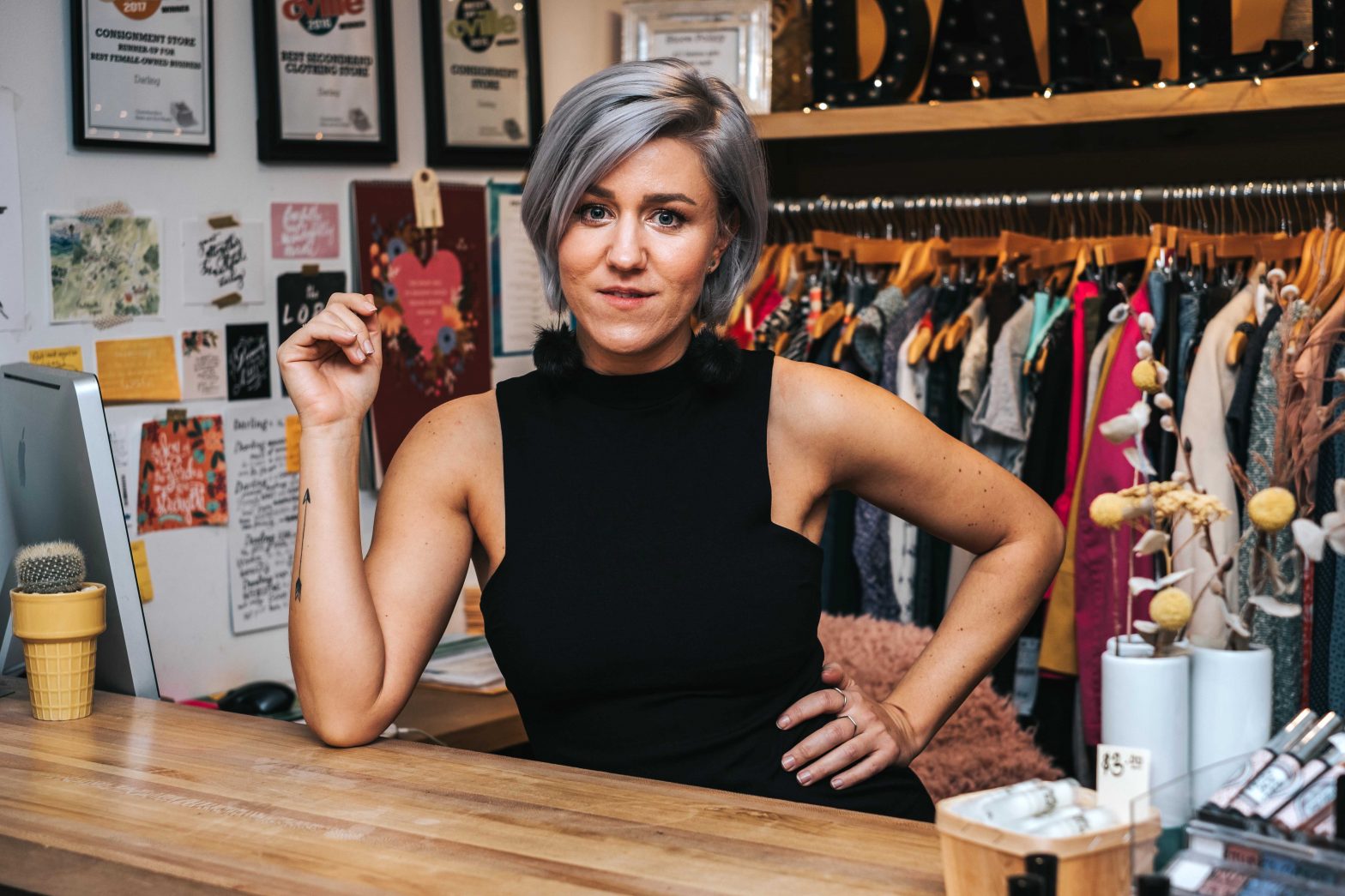Whether you are moving out, moving in together, downsizing, settling an estate, or just tired of the clutter, spring is a great time to get rid of stuff. But do the Earth a favor: Give your castoffs a second life.
Reuse helps both people and the planet. Community advocates point out that lots of folks will happily use what you no longer need or want. Green activists stress that making new things uses both resources and energy, and landfill space is limited. Environmental concerns among young people “are a huge part of why the thrift industry is growing so fast,” says Linnea Revak, owner of consignment store Darling x Dashing.
Consignment is a way to score some return, in cash or store credit—and it’s often easier than selling it online. For consignment, items must be clean, current in style, or truly vintage (not just old), and in good, working condition. Start by visiting the store or checking its website to see what the store stocks.
For apparel (clothing, accessories, hats, shoes, bags, and jewelry), Natalie Dressed features top-end brands, while Agents in Style takes only luxury and designer apparel. ReThreads and Darling accept a wider range of styles. Darling’s partner store Dashing takes only men’s apparel; Arsenic & Old Lace and Low are strictly vintage. Kid to Kid (its mantra: “kids grow faster than paychecks”) accepts children’s clothing, toys, sports apparel, and bikes; Plato’s Closet focuses on teens. High Tor Gear Exchange accepts kids and adult outdoor clothing and gear—the website’s sensible guidance: “Please clean all gear prior to arrival. Remember to check pockets.”
For furniture, furnishings, and housewares, the Consignment House focuses on items “of historical or artistic value” (e.g., heirlooms, signed artwork), while Heyday and The Eternal Attic accept a wider range of antiques (including jewelry) and furnishings. Circa, one of the biggest consigners, will take almost everything décor, from furniture to tchotchkes, for cash up front. “We can arrange to pick up large items,” says co-owner Robin Slaats. “Or you can call us before an estate sale to [come out and] see what you have.” All these outlets require an appointment or preview photos before you bring anything in.
If you don’t need money back, there’s lots of donation options. Goodwill, SPCA Rummage, and Salvation Army take an enormous range of items from A to Z—but check their guidelines because each place has its own rules. Habitat for Humanity’s ReStore only takes furniture, furnishings, some appliances, kitchenware, and building supplies. Donation appointments aren’t required, but “are appreciated,” says assistant manager Bert Bettinger, who’s seen a lot of downsizing lately. Then there’s Twice is Nice, whose sales support programs benefiting seniors; Schoolhouse Thrift Shop, which helps fund several local church missions, including PACEM’s homeless programs; and Earlysville Exchange, whose profits fund programs and resources for community members in need.
The donation outlets are trying to help you out, provide good choices to their customers, and save resources. Leaving large, bulky or broken stuff outside their door at night is not donation, it’s dumping.
What about your other stuff?
Books—Blue Whale Books pays cash, while the Book Room and 2nd Act Books offer store credit; each store specializes, so check websites or call beforehand. Unless you know your books are worth something, go for donation, including to your local library: Most branches accept books in good condition for resale (the Jefferson-Madison Regional Library’s fall 2022 book sale raised $137,000 for library programs). Peter Manno of Friends of the Library, which runs the volunteer-staffed sale, asks that if you’re donating more than two or three boxes, you drop them off at the JMRL’s Gordon Avenue branch.
Medical equipment—If it’s still usable, help someone in need by donating to Goodwill or All Blessings Flow.
Music/video—To sell your old vinyl or CDs, try Sidetracks, Plan 9, or Low. Each outlet has specific areas of interest, from rock to jazz to vintage. Most donation centers and libraries accept CDs and DVDs for resale. VHS and cassette tapes? Good luck.
TVs/computers/electronics—Do not just dump these items (the Rivanna Solid Waste Authority holds electronic waste collection days in the spring and fall). In addition, late-model televisions and electronics are accepted at some donation centers (check beforehand, their guidelines change frequently). For older items, stores like Staples, Best Buy and Crutchfield may offer recycling options. Lots of places take used cell phones, from donation centers to SHE (Shelter for Help in Emergencies). For laptops, contact Computers4Kids, which will “take laptops less than six years old and refurbish them for students in our community to learn programming, Photoshop, and other skills,” says Colin Learmonth, the group’s director of operations.
Bicycles—Charlottesville Community Bikes accepts bicycles in good condition to be cleaned up for a new rider.
Mattresses—No donation centers take mattresses. The International Rescue Committee, The Haven, and Love INC. occasionally need mattress/box springs sets (call first). If you’re willing to pay, there are services that will recycle mattress components. If all else fails, it’s off to the Ivy Materials Utilization Center—don’t just leave a mattress (or any large items) at the curb or the dumpster.
